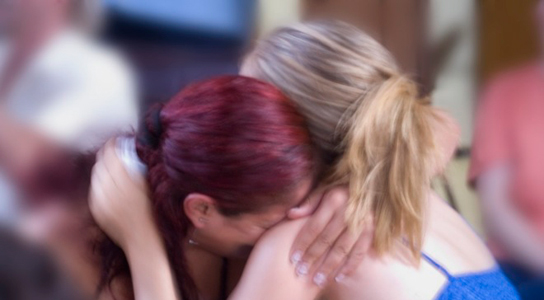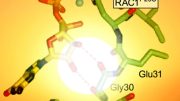
Revisions to psychiatric guidelines raise concerns about classifying grief as clinical depression. Credit: allspice1/Flickr
A change in the official psychiatric guidelines for depression has raised fears that grief over the death of a loved one could be classified as clinical depression.
The change is contained in new revisions to the DSM-5, a set of standards used to categorize mental illness, and it eliminates the bereavement exclusion, which exempts grieving people from diagnoses of depression for two months unless the symptoms are self-destructive. Now under the changes, depression could be diagnosed more easily just two weeks after a death.
The bereavement exclusion separated the normal responses from the more severe ones, like worthlessness and suicidal impulses. The bereavement exclusion’s removal was announced on December 1, by the American Psychiatric Association, citing that worries of pathologized grief are overblown. They argue that though not all grieving is depressive, grief-related depression isn’t that different from normal depression. As a result, they say the exclusion made it difficult for clinicians to deal with bereaved patients, who legitimately needed help.
The Diagnostic and Statistical Manual of Mental Disorders represents American psychiatrists’ tool for deciding between normalcy and mental disorders. It was first drafted in 1952. The latest changes developed over the last seven years and were recently approved. New conditions include hoarding, severe pre-menstrual syndrome, binge eating, temper tantrums, and everyday forgetting for elderly patients. Critics state that this represents a tendency in modern psychiatry to medicalize the normal range of human emotions.
Editorials opposing the decision have appeared in medical journals like The Lancet and the New England Journal of Medicine.
Reference:
“Living with grief” by The Lancet, 18 February 2012, The Lancet.
DOI: 10.1016/S0140-6736(12)60248-7
“Grief, Depression, and the DSM-5” by Richard A. Friedman, M.D., 17 May 2012, New England Journal of Medicine.
DOI: 10.1056/NEJMp1201794








So now there is a law that says how long I can grieve or at least how much I can show that I hurt after the death of a loved one. Emotions are slowly being outlawed and diagnosed as diseases that hinder the otherwise well-greased cogs of a soulless machine.
Welcome To The New World Order
& I’ll bet a dollar to donuts the quacks who thought this one up are as queer a 3 dollar bill…same ones who insist that homosexuality isn’t a mental disorder…take what these bozos say with a grain of salt…
Psychiatrists remind me of the old Mike Nichols/Elaine May sketch. Nichols, suffering from foot pain, wanders into the office of an ear specialist. When he discovers his mistake, he gets up to leave. “No, no. Don’t go,” the specialist implores.”We ear doctors now know that the ear extends throughout the entire human body.”
If bereavement is an illness, then maybe workers will be able to get some sick leave benefits in order to grieve their loss before returning straight to work. That would be useful.
Yeah, as a therapist I take issue with this. Grief is a very individual phenomenon and it’s difficult to account for all of the other various factors as well. I don’t like the idea of pathologizing grief.